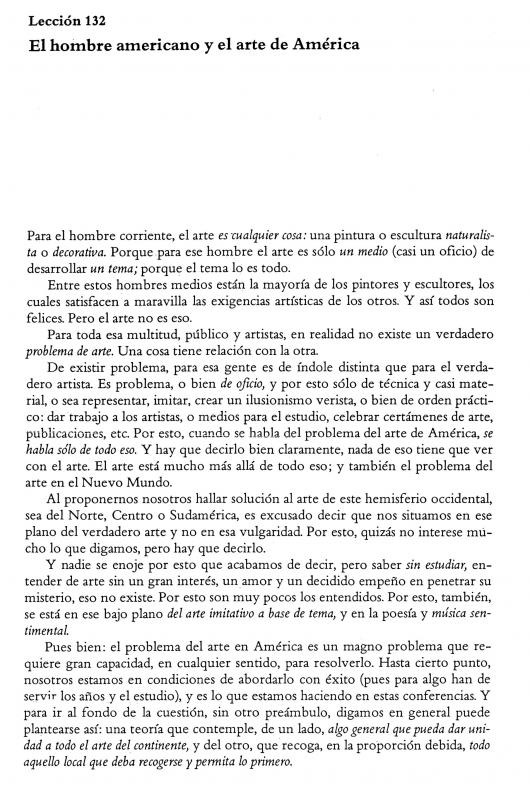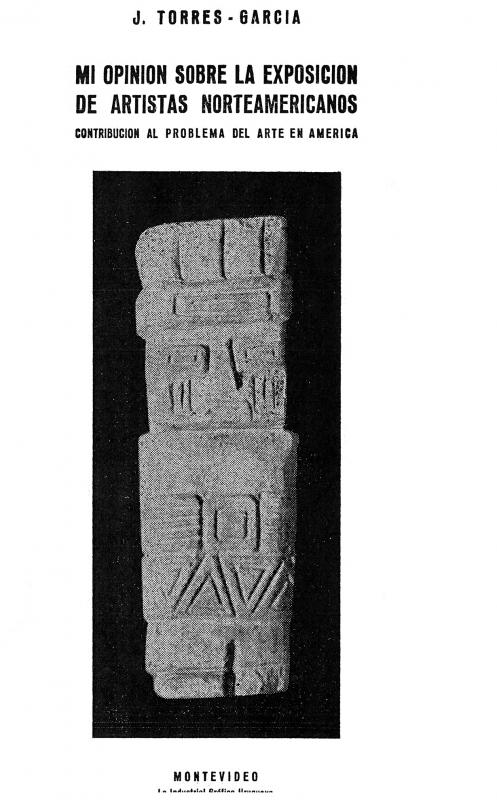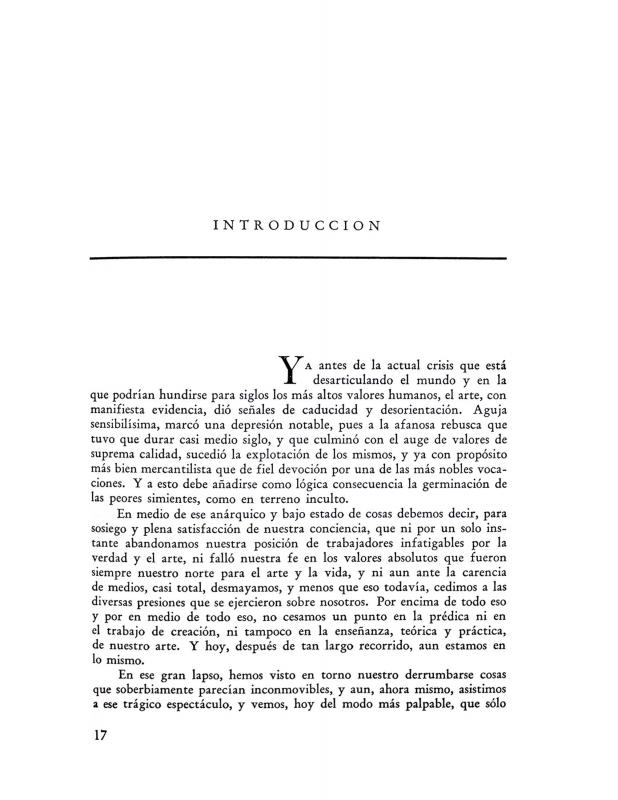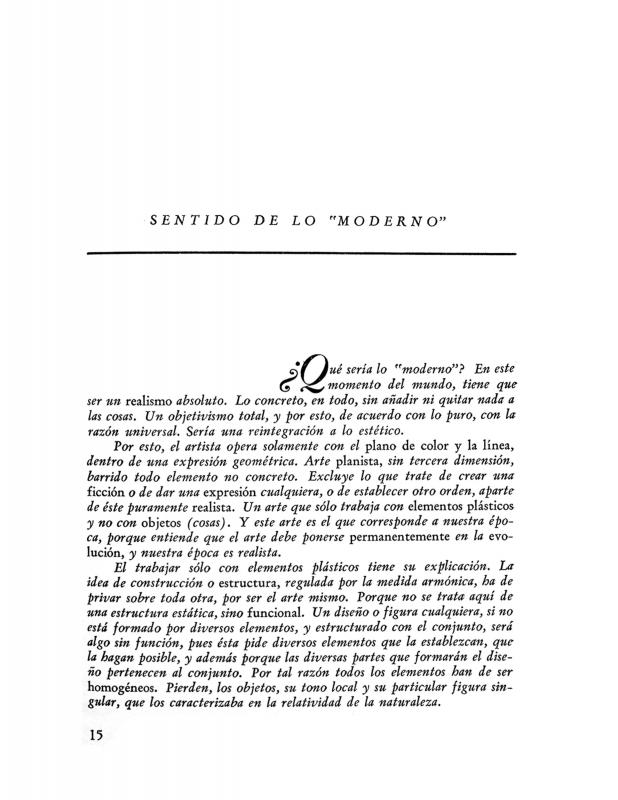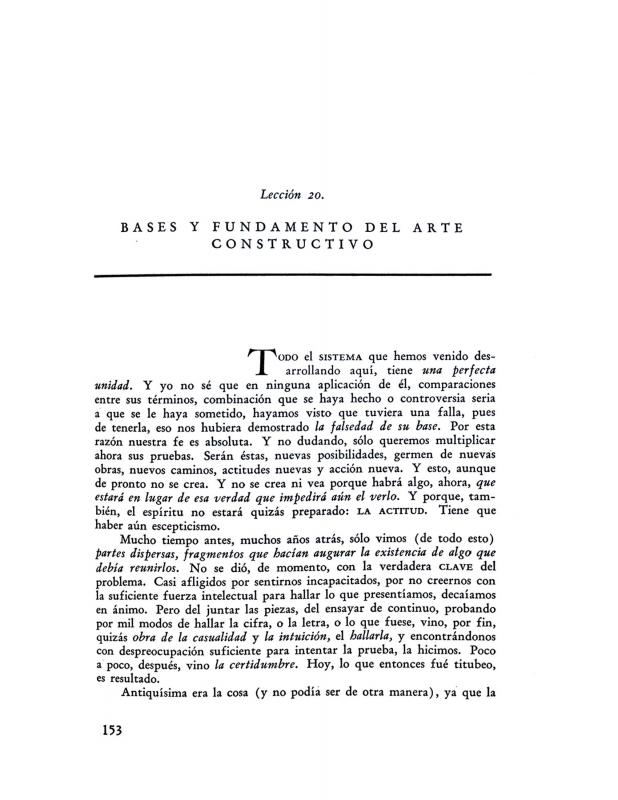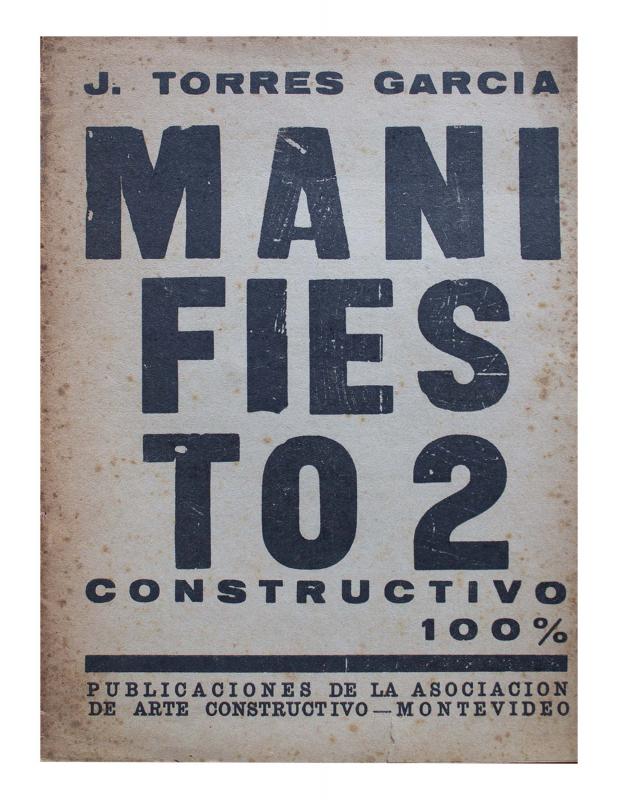Constructive Universalism tends to restore the “sense of tradition” by relocating the universal above individual interests. Joaquín Torres García recognizes that this is a symbolic ploy, considering that symbolic thought (universalist and structuralist) corresponds to the human tendency toward justice, to the right of the imposition of the law on what is enforced, to combat oppression, and other matters. Torres García seeks to find a “new art of America” against the dominant political conspiracies in its intellectual arena but without entering into partisan considerations. On the other hand, the author proposes to didactically explain what he understands as “classical art” as opposed to “romantic art.” Normative art is where “an idea prevails over emotions.” In this sense, Torres García, does not consider “classical” Greek art as the paradigm of classicism. The “classical” in archaic Greek is a good example of his concept. Torres García’s concept of classicism gives rise to the concept of the “the visual arts form” as an absolute value, independent of any representation of the real. It derives from the idea of landscape planes, and of the indispensable frontal immersion in all mural painting. It establishes the distinction between sentiments about “earth” and “nation.” The latter being related to “the political” generates a figurative and representative art of historical and mundane events, while in turn, the first is related, to “the cosmic,” referred to absolute values, which “should be weighed regarding future American art.” [For additional reading, please refer to the ICAA digital archive for the following texts written by Joaquín Torres García: “Con respecto a una futura creación literaria” (doc. no. 730292), “Lección 132. El hombre americano y el arte de América” (doc. no. 832022), “Mi opinión sobre la exposición de artistas norteamericanos: contribución” (doc. no. 833512), “Nuestro problema de arte en América: lección VI del ciclo de conferencias dictado en la Facultad de Humanidades y Ciencias de Montevideo” (doc. no. 731106), “Introducción [en] Universalismo Constructivo” (doc. no. 1242032), “Sentido de lo moderno [en Universalismo Constructivo]” (doc. no. 1242015), “Bases y fundamentos del arte constructivo” (doc. no. 1242058), and “Manifiesto 2, Constructivo 100%” (doc. no. 1250878)].


